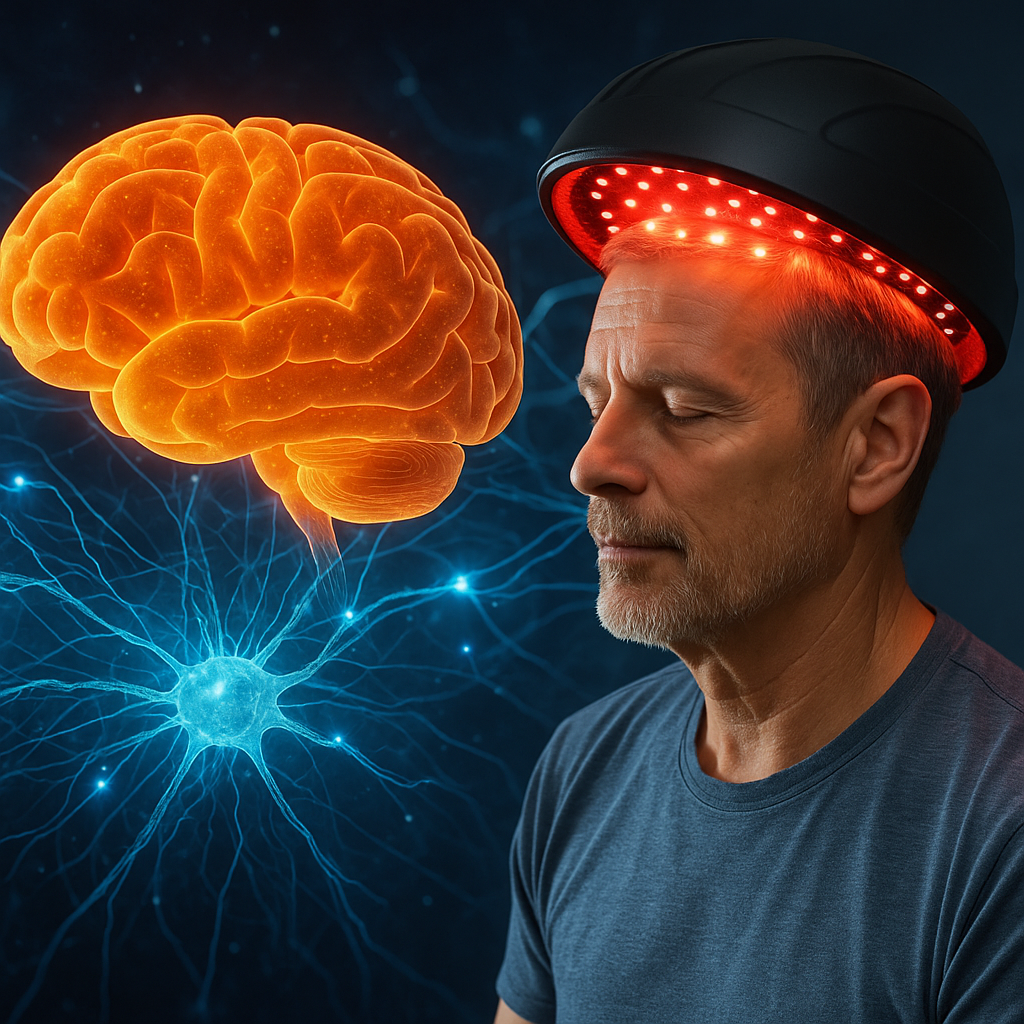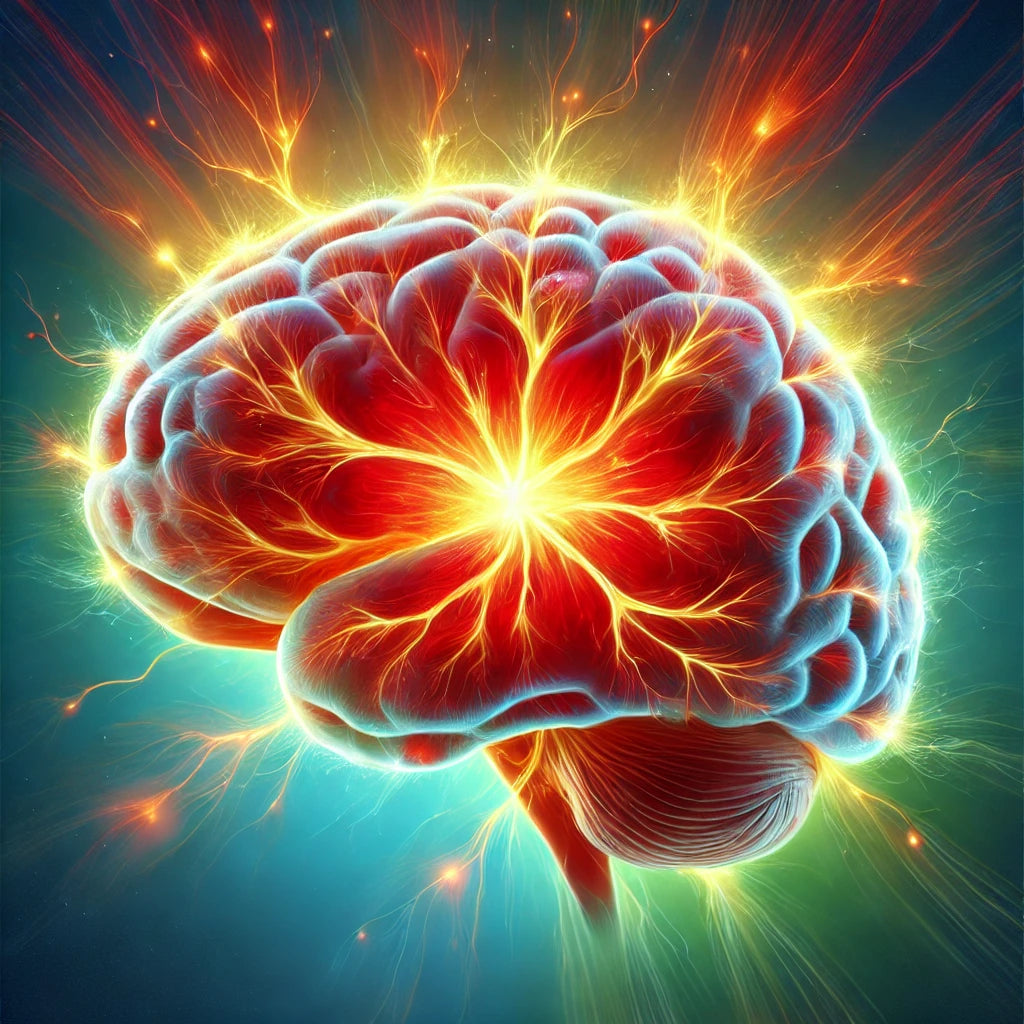News — brain inflammation
How Photobiomodulation Therapy Supports Neurorehabilitation
ATP production brain healing brain inflammation brain injury recovery cognitive recovery light therapy brain LLLT low-level laser therapy mitochondrial healing neurodegenerative disease neuroplasticity neurorehabilitation neurotherapy PBM safety PBM therapy photobiomodulation red light therapy stroke rehabilitation transcranial laser therapy traumatic brain injury
Advances in neurological rehabilitation have taken a promising turn with the growing integration of light-based therapies, particularly photobiomodulation (PBM), also known as low-level laser therapy (LLLT). This non-invasive approach uses specific wavelengths of light to stimulate cellular repair, reduce inflammation, and enhance neuroplasticity—making it a novel tool in the recovery process for those with brain injuries, neurodegenerative diseases, and other neurological conditions.
By harnessing the power of red and near-infrared light, PBM can penetrate the skull and deliver energy directly to neurons and glial cells. Unlike surgical or pharmaceutical interventions, PBM works by modulating mitochondrial activity and cellular signaling pathways, facilitating a wide range of therapeutic outcomes. This article explores how photobiomodulation is transforming the landscape of neurorehabilitation, what the research says, and how it can be applied in clinical and home settings.
Autoimmune vs Infectious Encephalitis and Psychiatric Disorders
autoimmune antibodies autoimmune brain disease autoimmune encephalitis brain infection brain inflammation EEG for encephalitis encephalitis diagnosis encephalitis recovery encephalitis symptoms encephalitis vs psychosis herpes encephalitis infectious encephalitis IVIG therapy mental health diagnosis MRI brain inflammation neuroinflammation neurological symptoms NMDA receptor psychiatric disorders psychiatric misdiagnosis
When unexplained changes in behavior, cognition, or physical function occur, the root cause is often elusive. Three common yet complex culprits—autoimmune encephalitis, infectious encephalitis, and psychiatric disorders—can present in similar ways but require vastly different approaches. Misdiagnosis can delay appropriate treatment and significantly impact outcomes, making it critical to distinguish among them with clarity and care.
Autoimmune encephalitis and infectious encephalitis are both neurological conditions that inflame the brain, but they stem from very different sources. Meanwhile, psychiatric disorders, though non-inflammatory, often mimic the cognitive and behavioral disturbances seen in encephalitic processes. Understanding the nuances between these conditions is essential for accurate diagnosis, effective treatment, and compassionate care.
Treating Encephalitis: Medications and Supportive Care
antiviral therapy brain inflammation encephalitis management encephalitis recovery encephalitis support encephalitis symptoms encephalitis treatment health and wellness medications for encephalitis supportive care
Encephalitis is a serious condition characterized by inflammation of the brain, often caused by viral infections, autoimmune responses, or other medical conditions. It can lead to symptoms like fever, confusion, seizures, and even neurological damage if left untreated.
This guide provides an in-depth look at treating encephalitis through medications and supportive care to manage symptoms and aid recovery.
The Impact of Antioxidants on Cognitive Function: Boost Your Brain Health
anti-inflammatory diet antioxidant-rich foods antioxidants brain antioxidants Brain Health brain inflammation brain protection cognitive decline cognitive function cognitive health flavonoids free radicals healthy aging memory support mental agility neurodegenerative diseases omega-3 fatty acids oxidative stress supplements for brain health vitamin C vitamin E
Cognitive health is essential for maintaining a high quality of life, especially as we age. Our brain, like any other organ, is susceptible to the damaging effects of oxidative stress. This occurs when there’s an imbalance between free radicals and antioxidants in the body, leading to cellular damage. Over time, oxidative stress can impair cognitive function, contributing to memory loss, decreased mental agility, and even neurodegenerative diseases such as Alzheimer’s.
Antioxidants, found abundantly in fruits, vegetables, and certain supplements, play a crucial role in combating oxidative stress. By neutralizing free radicals, these powerful compounds help protect the brain from damage, supporting mental clarity, memory, and overall cognitive function. In this article, we will explore the profound impact of antioxidants on cognitive health, delving into the science behind their benefits and how you can incorporate them into your daily routine.
Neuroinflammation: The Hidden Enemy of Brain Health - Causes, Symptoms, and Prevention
Alzheimer's disease anti-inflammatory diet blood-brain barrier Brain Health brain health strategies brain inflammation chronic inflammation cognitive decline cognitive function exercise and brain health immune response in brain microglia activation mood disorders multiple sclerosis neuroinflammation neuroinflammation symptoms neurological disorders neurological research Parkinson’s disease stress management supplements for brain health
In the complex world of brain health, neuroinflammation stands as a subtle yet powerful adversary. It lurks beneath the surface, often unnoticed until significant damage has been done. While inflammation is a natural response of the immune system to injury or infection, when it occurs in the brain, it can lead to a host of neurological disorders. From Alzheimer's disease to multiple sclerosis, the consequences of unchecked neuroinflammation are profound.
Understanding neuroinflammation is key to unlocking new treatments and preventive measures for brain health. By delving into its causes, symptoms, and long-term effects, we can gain a clearer picture of its impact and the strategies needed to combat it. Let's explore this hidden enemy and uncover the steps we can take to protect our brain health.





